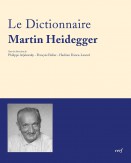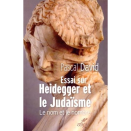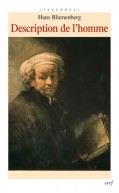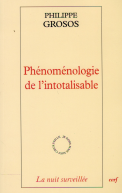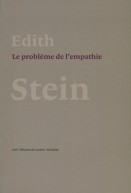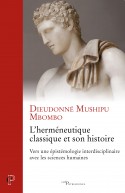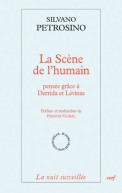
Intelligence du corps
Collection La Nuit surveillée
288 pages - févr. 2013
27,50€
En quoi le corps participe-t-il de l’entente que l’homme a du monde ? Que signifie dès lors écouter ? Comment établir un rapport juste à l’animal ? Quel sens prêter aux couleurs ? Pourquoi la tonalité décisive de notre rapport au monde peut-elle advenir à la faveur d’expériences olfactives et gustatives ? En quoi la tactilité incite-t-elle à considérer le corps vif comme une donnée originaire et à reconnaître qu’il est bien une vulnérabilité dotée d’aptitudes qui nous dispose au monde ? Comment l’angoisse, révélée et cachée tout à la fois par la maladie, est-elle chevillée au corps de l’être-au-monde, le « Dasein » ? Qu’en est-il du corps dans la nostalgie, dans la mélancolie, dans l’ennui et dans la joie ? Pourquoi la coexistence, supposant relations et rencontres, implique-t-elle l'articulation des corporéités vives comme dans le tact sensitif ou dans la jalousie amoureuse et dans l’amour pensé en terme de tonalité érotique ? Comment comprendre la mobilité et parvenir ainsi jusqu’à l’éminente dignité ontologique du mouvement ? De quoi la pensée est-elle redevable au corps ? Telles sont les questions qui jalonnent cet ouvrage. Par son orientation résolument phénoménologique, l'« Intelligence du corps » entend renouveler l’entente du phénomène le plus proprement humain et, cependant, le plus malmené par la métaphysique. Prenant librement appui sur les vues inouïes de Martin Heidegger, consciente de l’actuelle soumission du corps de l’homme à l’arraisonnement technique, Ingrid Auriol ouvre une voie d’accès à l’intelligence du corps libérée de cette violence.
--
What role does the body play in man’s understanding of the world? In this context, what does ‘to listen’ really mean? How can we establish just relations with animal life? What meaning should we give to colours? Why can the decisive tonality of our relation to the world emerge through olfactive and gustative experiences? How does tactility incite us to consider the living body as an original element, and to recognize that it is indeed our vulnerability, enhanced with aptitudes, that adapts us to the world? How is anguish, both revealed and hidden by illness, inherent to beings in the world, to ‘Dasein’? What part does the body play in nostalgia, in melancholy, in boredom or joy? Why does coexistence, which supposes relations and meetings, require the articulation of vital corporalities, as in sensitive tact or passionate jealousy, and in love when defined as an erotic tonality? How can we understand mobility and so reach the eminent ontological dignity of movement? What does thought owe to the body? These are the questions that run through this book. With its resolutely phenomenological slant, Intelligence du corps aims to renew our understanding of the most specifically human phenomenon, which is also the most ill-treated by metaphysics. Drawing freely on Martin Heidegger’s astonishing views, aware of today’s submission of human body to the assault of technical progress, Ingrid Auriol opens a path to understanding the body set free from that violence.
--
What role does the body play in man’s understanding of the world? In this context, what does ‘to listen’ really mean? How can we establish just relations with animal life? What meaning should we give to colours? Why can the decisive tonality of our relation to the world emerge through olfactive and gustative experiences? How does tactility incite us to consider the living body as an original element, and to recognize that it is indeed our vulnerability, enhanced with aptitudes, that adapts us to the world? How is anguish, both revealed and hidden by illness, inherent to beings in the world, to ‘Dasein’? What part does the body play in nostalgia, in melancholy, in boredom or joy? Why does coexistence, which supposes relations and meetings, require the articulation of vital corporalities, as in sensitive tact or passionate jealousy, and in love when defined as an erotic tonality? How can we understand mobility and so reach the eminent ontological dignity of movement? What does thought owe to the body? These are the questions that run through this book. With its resolutely phenomenological slant, Intelligence du corps aims to renew our understanding of the most specifically human phenomenon, which is also the most ill-treated by metaphysics. Drawing freely on Martin Heidegger’s astonishing views, aware of today’s submission of human body to the assault of technical progress, Ingrid Auriol opens a path to understanding the body set free from that violence.
- Dimensions : 135x215x22
- ISBN : 9782204097857
- Poids : 380 grammes
DU MÊME AUTEUR
> VOIR TOUS LES LIVRES DE l'AUTEUR

